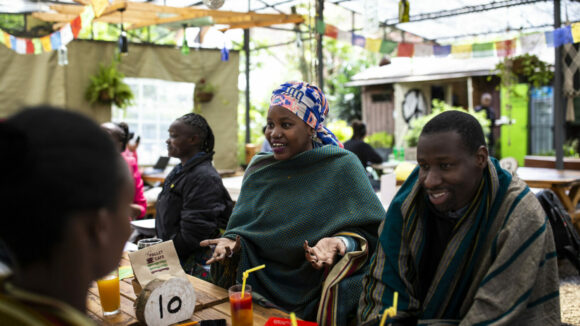Practical tools and resources to make economic empowerment programmes disability inclusive.
Inclusive employment and livelihoods
There are between 180 and 220 million young people with disabilities worldwide and nearly 80% live in developing countries.
If you’re a young person who has a disability, finding a job which delivers a fair income, rights, social protection and career prospects can be a huge challenge. And if you’re a young woman with a disability in a developing country, the barriers can be even higher because of societal prejudices based on disability and gender.
Why should disability inclusion be at the top of the agenda when discussing economic opportunity for young people?
- Under Sustainable Development Goal 8, the global development community has committed to promoting sustained, inclusive and sustainable economic growth, full and productive employment and decent work for all. Unless the barriers that young people with disabilities face in accessing employment are addressed, this goal won’t be met.
- When young men and women with disabilities can access decent jobs and career paths, it creates wider benefits for individuals, communities and societies, including improved education, health and wellbeing outcomes.
“Many people think they’re left out because of the impairments they have, but they’re left out because the workplace is not accessible for them.”
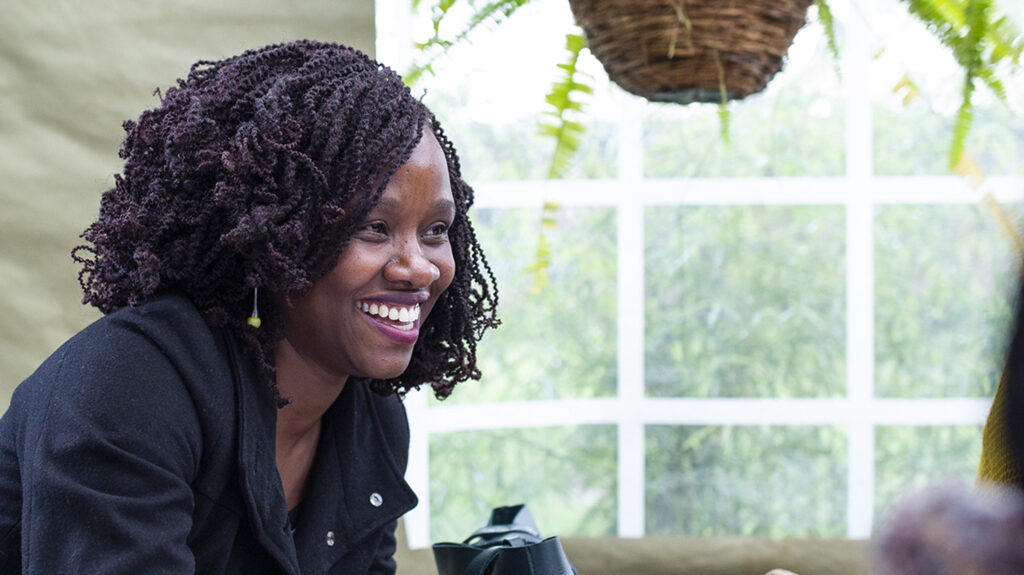
Liz Ombati, disability rights advocate, Kenya
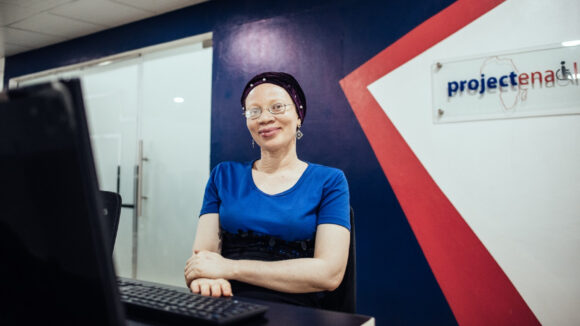
“For me, reimagining economic opportunity means investing in young people with disabilities to pursue broader career paths.”
Grace, Nigeria
A practical tool for inclusive economic empowerment
Through Inclusive Futures, we work with young people with disabilities to build their confidence and skills, enabling them to compete in the employment market and fulfil their career aspirations. We also work with employers to provide them with training and guidance to become disability-confident, and attract, hire and retain people with disabilities.
But we don’t have all the answers. By engaging young people with disabilities in our planning and decision making, we’ve learned that we can tap into their perspectives, knowledge, and insights to make our programmes more effective and inclusive.
We asked some of the young people we work with to develop an assessment tool to ensure our economic empowerment programmes meet their expectations. The tool is open-source and freely available for anyone working in the development sector and economic opportunity or livelihoods programming to use.
Are your employment programmes disability-inclusive?
Try our self-assessment“Before, I didn’t know much about financial management or record keeping. Now I’ve been given a partial grant, which I’ve used to add stock to my shop, and I've been able to support my family.”
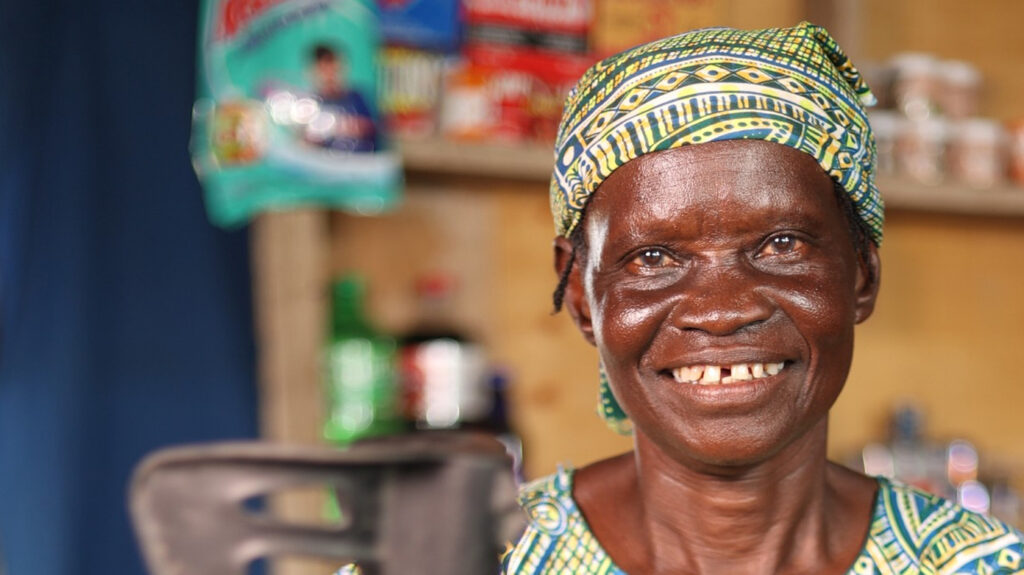
Mary, South Sudanese microentrepreneur living in Kenya
Watch our disability inclusive livelihoods webinar.
Hear from speakers from Inclusive Futures consortium partners including BRAC, Humanity and Inclusion, Light for the World and United Disabled Persons of Kenya, as they share experiences and lessons learned from adapting livelihoods programmes to be disability inclusive in Bangladesh, Kenya, and Uganda.
More on inclusion and economic empowerment
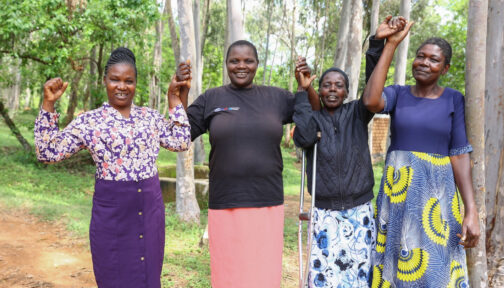
Empowering women through the Global Labor Program
On International Day of Rural Women, we share how the programme is empowering rural women in Kenya by ensuring they have the skills, knowledge and opportunities to thrive.
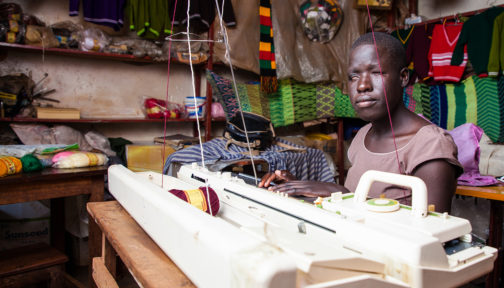
Follow the money: how to track public spending on disability inclusion
Martha Bekele from Development Initiatives explains the challenges around budget tracking and offers recommendations on how governments can be more transparent.
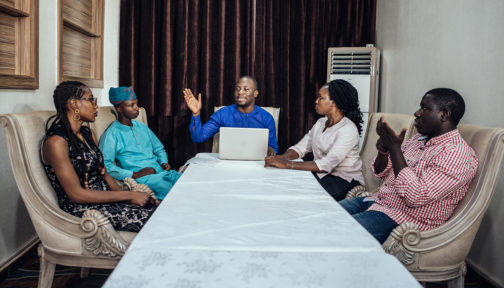
Five cost-free ways to make your workplace disability-inclusive
Inclusion International shares tips from its latest toolkit on supporting people with intellectual disabilities at work. Many of the tips are free and can be implemented without the expense of outside expertise.
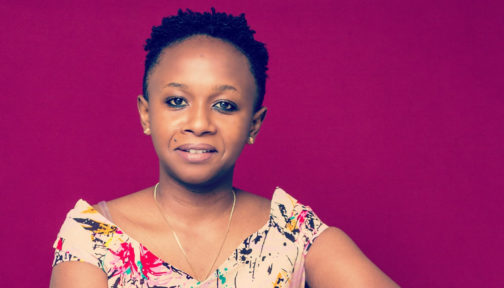
Racheal Njiru: “One day, I hope we will not have to remind NGOs, donors and government to include persons with disabilities”
Racheal Njiru is a disability inclusive project manager working on the Inclusive Futures programme for Humanity & Inclusion.
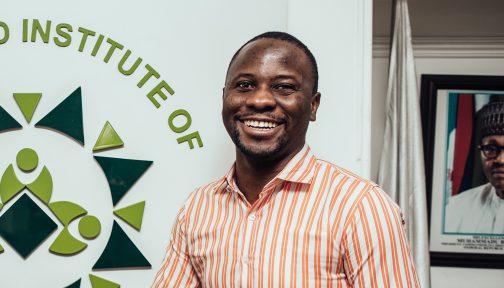
Rasak Adekoya
Rasak Adekoya is programme development advisor at Sightsavers and works on disability inclusive economic empowerment. He is based in Nigeria.
Sign up to Inclusive Futures emails today
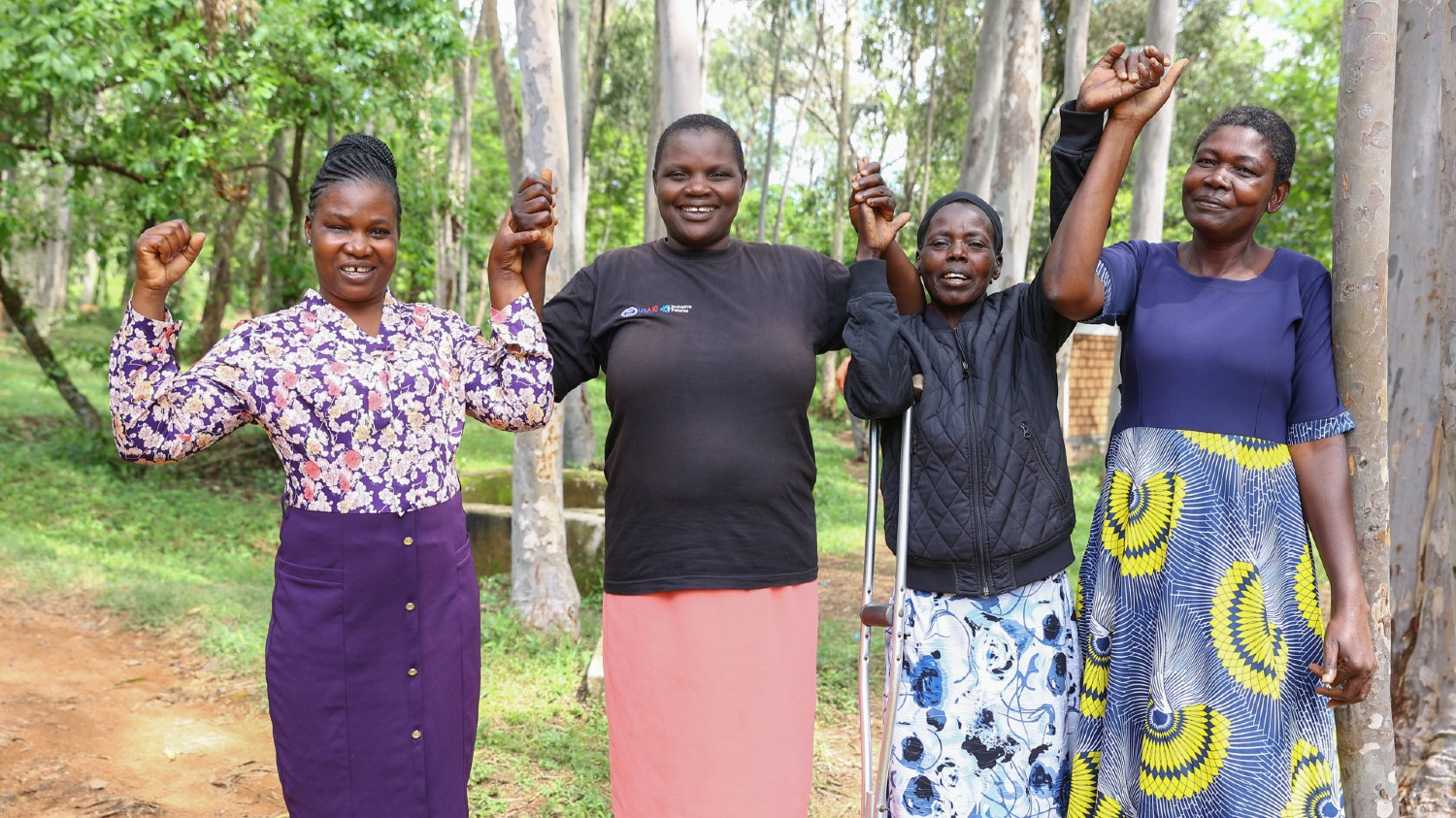
Sign up to Inclusive Futures emails today
Want to hear more from Inclusive Futures? Sign up to receive the latest research from our programmes and resources to help make your work inclusive of people with disabilities.
For more information see our privacy policy

